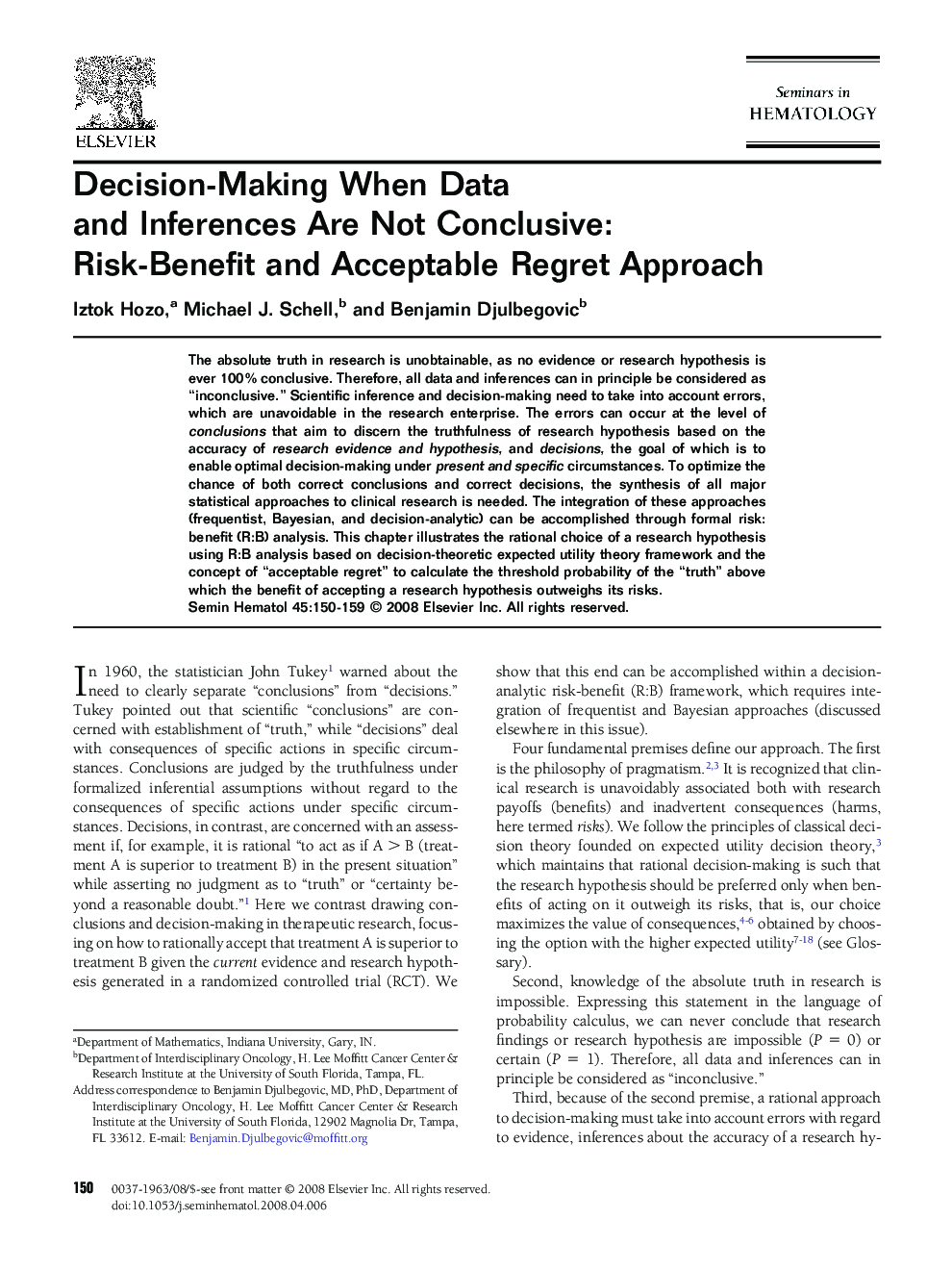| کد مقاله | کد نشریه | سال انتشار | مقاله انگلیسی | نسخه تمام متن |
|---|---|---|---|---|
| 3333634 | 1213331 | 2008 | 10 صفحه PDF | دانلود رایگان |
عنوان انگلیسی مقاله ISI
Decision-Making When Data and Inferences Are Not Conclusive: Risk-Benefit and Acceptable Regret Approach
دانلود مقاله + سفارش ترجمه
دانلود مقاله ISI انگلیسی
رایگان برای ایرانیان
موضوعات مرتبط
علوم پزشکی و سلامت
پزشکی و دندانپزشکی
هماتولوژی
پیش نمایش صفحه اول مقاله

چکیده انگلیسی
The absolute truth in research is unobtainable, as no evidence or research hypothesis is ever 100% conclusive. Therefore, all data and inferences can in principle be considered as “inconclusive.” Scientific inference and decision-making need to take into account errors, which are unavoidable in the research enterprise. The errors can occur at the level of conclusions that aim to discern the truthfulness of research hypothesis based on the accuracy of research evidence and hypothesis, and decisions, the goal of which is to enable optimal decision-making under present and specific circumstances. To optimize the chance of both correct conclusions and correct decisions, the synthesis of all major statistical approaches to clinical research is needed. The integration of these approaches (frequentist, Bayesian, and decision-analytic) can be accomplished through formal risk:benefit (R:B) analysis. This chapter illustrates the rational choice of a research hypothesis using R:B analysis based on decision-theoretic expected utility theory framework and the concept of “acceptable regret” to calculate the threshold probability of the “truth” above which the benefit of accepting a research hypothesis outweighs its risks.
ناشر
Database: Elsevier - ScienceDirect (ساینس دایرکت)
Journal: Seminars in Hematology - Volume 45, Issue 3, July 2008, Pages 150-159
Journal: Seminars in Hematology - Volume 45, Issue 3, July 2008, Pages 150-159
نویسندگان
Iztok Hozo, Michael J. Schell, Benjamin Djulbegovic,